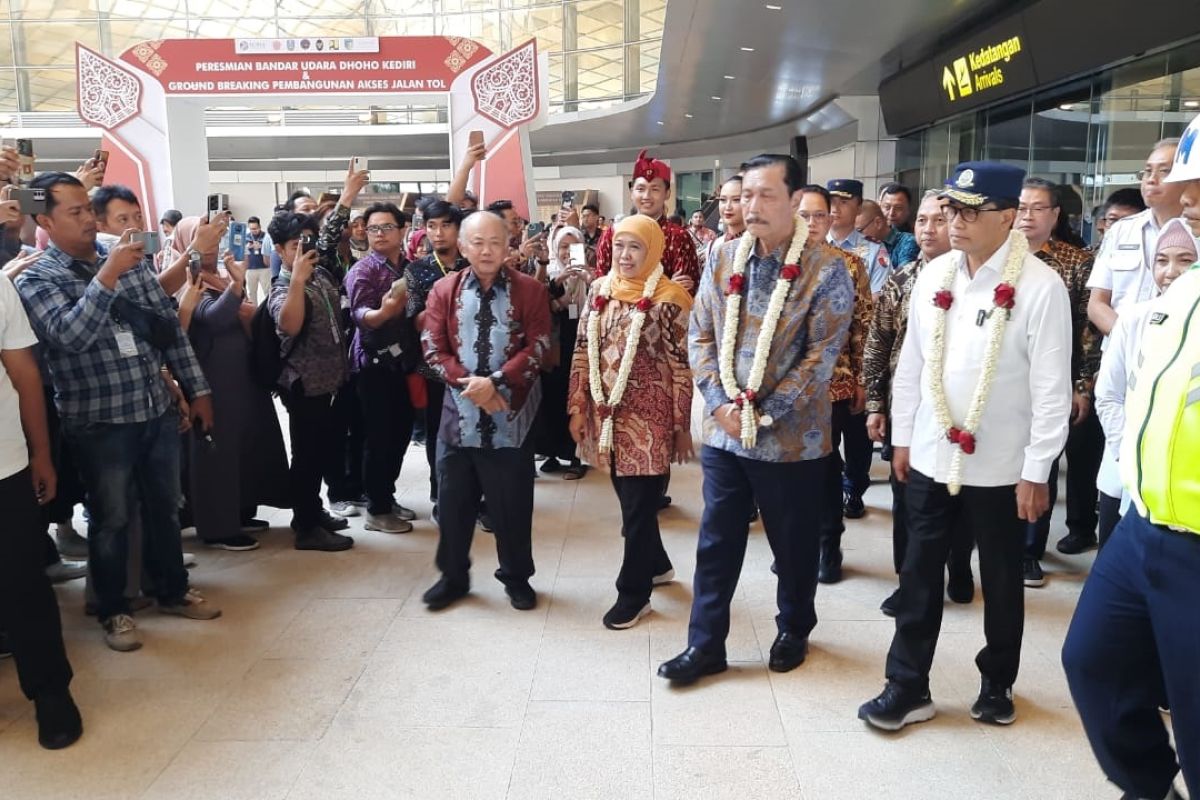According to the minister, the airport is the first pilot project in the country to be launched under a government and business entity cooperation (KPBU) scheme, meaning it is a private sector project that is supported by the government.
"Dhoho Airport in Kediri reflects effective collaboration between the public sector and the private sector," he said at the inauguration of the airport as well as the groundbreaking of toll road access in Kediri on Friday.
He added that Dhoho Airport will change the non-existent flight map in southern Java.
Furthermore, with the toll road, travel time between the airport and Kediri will be one hour. Thus, Kediri will no longer depend on Juanda International Airport, Surabaya.
"Later, this airport can support Hajj and Umrah flights as well," he added.
On the same occasion, Transportation Minister Budi Karya Sumadi noted that after Juanda International Airport, Dhoho Airport will be the second airport in the south of Java Island, which has relatively no airports.
"In the near future, we will also coordinate with the Ministry of Religious Affairs to build a Hajj dormitory here," he informed.
Related news: Minister lauds progress in construction of Kediri's Dhoho airport
Meanwhile, the president director of PT Surya Dhoho Investama (SDhI), Istata T. Siddharta, remarked that Dhoho Airport is a gift to the nation.
"This airport is a real contribution to the development and progress of the Indonesian economy, and opens wider access to areas in southern East Java, including the Wilis area such as Nganjuk, Kediri, Tulungagung, Trenggalek, Ponorogo, and Madiun districts," he said.
The airport was built by PT Surya Dhoho Investama (SDhI), a subsidiary of PT Gudang Garam Tbk.
Its soft launch was held on April 5, 2024, and so far, the airport has served more than 20 thousand passengers and 175 aircraft movements.
Dhoho Airport has a 3,300-meter-long and 45-meter-wide runway. It can accommodate wide-body jet aircraft, so it can also serve international flights.
In the initial stage, the passenger terminal was designed to accommodate up to 1.5 million passengers per year and was gradually expanded to handle 10 million passengers annually.
Dhoho Airport is expected to open up new business opportunities and create more jobs in various sectors such as transportation, tourism, and hospitality, and support other sectors such as agriculture, livestock, and plantations.
Related news: 27 airports built by Widodo govt helping boost connectivity: ministry
Translator: Asmaul Chusna, Resinta Sulistiyandari
Editor: Yuni Arisandy Sinaga
Copyright © ANTARA 2024












